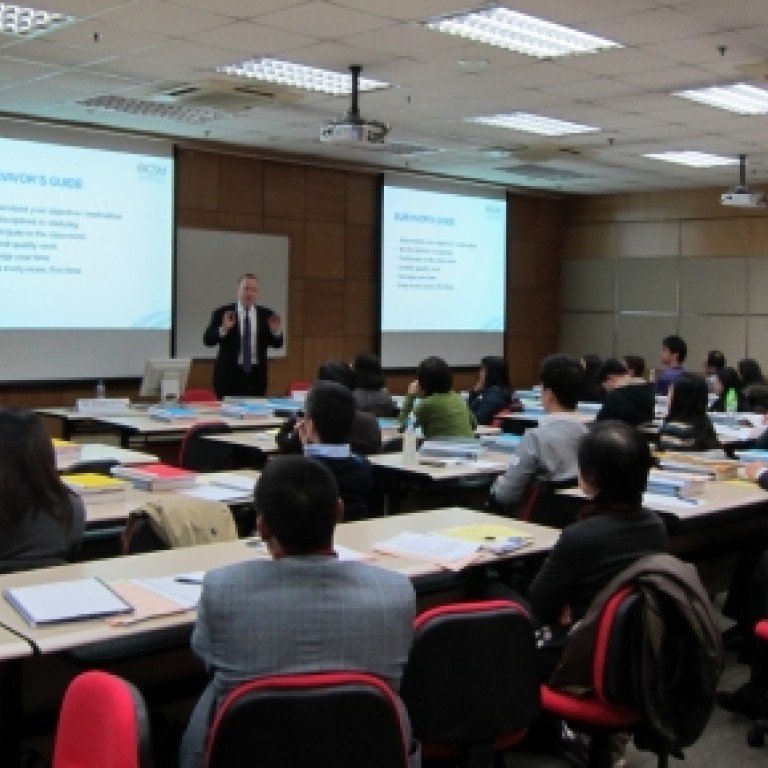
The #LivePure Challenge #4: Yoga A-Go-Go
Senior Ed Adam White is going from fat to fit with a tailored wellness program with the Pure Group.
The complex nature of modern business requires executives to master a wide array of practical knowledge and communication skills. But running a successful enterprise, whatever its scope and scale, also entails something more.
This extra dimension goes beyond the basics of boosting sales, hitting targets and boosting the bottom line. It recognises that organisations and their leaders should also be ready to accept broader responsibility. Where appropriate, they should be looking to set a genuinely positive example and represent core values society can respect.
With this in mind, the Macquarie Graduate School of Management (MGSM) has set out a clear objective for all its courses which, in Hong Kong, run from certificate and diploma programmes to a master's of management and an MBA.
Besides teaching the skills, strategies and insights needed to impress, the aim is to develop leaders who embody good citizenship, are globally minded and understand the importance of creating sustainable value.
Reflecting this, aspects of corporate social responsibility are now included in all core courses. There is also emphasis on the principles of the "global compact", a code of business behaviour agreed on by many leading multinationals around the world. In adopting this, they pledge to respect human rights, the environment, labour rights and to make a stand against corrupt practices.
"We believe business schools have a responsibility to convey the principles and values of the global compact," says Robert Widing, MGSM dean and professor in management (marketing). "We start on day one and do it through our research, teaching, curriculum, and partnerships with industry."
To press the point home, students - particularly those taking the MBA - are urged to discuss key themes and identify areas for improvement in their own companies. Every organisation can serve as a case study in terms of its environmental practises, deployment of assets, dealings with staff and more.
As part of the strategy course, students can focus on a project which promotes sustainable value. The goal is to come up with a business plan which takes due account of divergent expectations of the main direct and indirect stakeholders. To expand horizons, classes on leadership range well beyond the more usual examples of 21st-century corporate success and excess, and examine the words and deeds of Socrates, Plato, Nietzsche and Machiavelli.
"Our classes relate to East and West and how the two are coming together," Widing says. "We realise that, for China, developing a global mindset is probably now more important than it has ever been. And with more Eastern businesses buying Western companies since 2010, rather than vice versa, it is important for individual executives [from contrasting backgrounds] to be able to adapt."
While he notes that it takes more than a year or two to become an assured and effective leader, Malcolm Irving, chairman of the MGSM board, stresses that key characteristics and principles can be taught. The best starting point is to have a clear-sighted, ethical approach, whatever the business and its relative complexities.
"What differentiates leaders is the ability to make courageous decisions in the interests of your organisation," Irving says. "But these days, you also have to be a good corporate citizen, think about the environment and have your stakeholders in mind. At MGSM, we create leaders who can make a difference and remind them about behaviour that is not acceptable."
Based in Hong Kong, Richard Petty, associate dean (international) and professor in management (accounting and finance) at MGSM, says: "At the start of the programme, we ask students about their goals and aspirations. Often, it is to be the best they can be, and at a more advanced level of management and leadership training, that includes a focus on ethics."
Between 100 and 140 MBA students are accepted annually. "We set a flexible timetable as most students are working full time," Petty says. "Typically, they take two years to complete but can accelerate if they wish."
